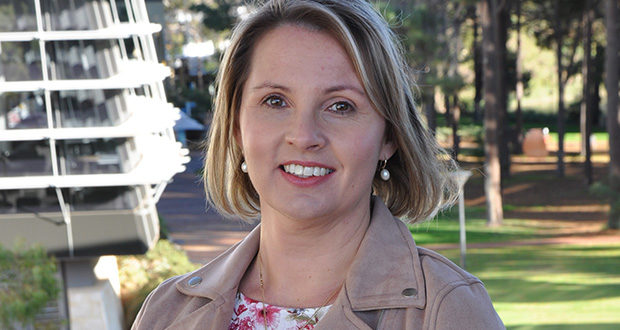Edith Cowan University (ECU) has spearheaded a program to better prepare the midwifery workforce for the future.
The 'Mothers Adopt Midwifery Students program' connects expecting parents and midwifery students to accompany each other through the ups and downs of pregnancy, birth and early parenthood.
ECU Associate Dean of Midwifery Di Bloxsome has seen how mothers and students have benefited immensely from experience.r
"For midwifery students to experience pregnancy and parenthood, and everything in-between, poses an invaluable lesson outside the classroom," she said.
"The real experience can be a rollercoaster ride.
"It's an often-difficult process for many reasons, so it can help to have people along for the ride to provide support — especially if they have a passion for midwifery."
All midwifery students have to follow at least ten parents to graduate.
The university finds pregnant couples through social media and online advertisements.
Although the program launched in 2010, Bloxsome said it continues to address current issues midwives in the workforce face.
Australia is facing ongoing challenges in providing adequate learning opportunities for student midwives.
One major issue is the rising pressure on the healthcare industry, which makes hospitals reluctant to take on students for clinical internships.
Another aspect is the rising costs of living in combination with escalating fees of program implementation.
Nevertheless, Bloxsome is pushing for midwives to receive the best hands-on experience to prepare them for the workforce.
"It's now needed more than ever," she said.
"With this program, we ensure that students receive the full continuum of what it means to be a midwife."
It's anticipated that Australia will need more than 85,000 midwives and nurses by 2025 and 123,000 by 2030.
Additionally, there have been reports of midwives leaving the sector due to unsafe working conditions and unrealistic staff-to-patient ratios.
Bloxsome said the program delivered an authentic clinical experience to midwives while supporting soon-to-be parents.
"The student learns what pregnancy really means out there in the real world and how antenatal appointments, labour and birth are undertaken," she said.
"Because every woman's pregnancy and birthing experience is unique.
"At the same time, midwifery students can offer vital support to mums and their partners while bonding with them."
First-year student Taylor Boelema followed two couples very early in her degree, which left a deep impression on her.
"It reaffirmed my aspirations to become a midwife," she said.
"I feel like I've learned a lot – I've been able to get hands-on and do things like feel a baby's position inside the womb.
"Jasper's was the first birth I've been to in person, which was incredible and so beautiful."
Boelema said the experience helped her gain confidence and realise that what she learned in the classroom had real-world relevance.
"When I first started, I always felt a bit nervous, but then as I learned more, I became more confident," she said.
"Each of the births was very different, and once I've had the chance to help more women birth their babies and support more parents, I'll be even more confident and capable when I graduate."
One of Boelema's expecting parents was mother-of-two Sharni Hughes.
Unfortunately, Hughes' first journey as an expecting mother was more difficult than most.
While 16 weeks pregnant with her first child, the couple discovered that they both carried genes for a genetic disorder called 'short rib polydactyly syndrome (SRPS).'
SRPS is an extremely rare inherited disorder characterised by short ribs and limbs, and defects in bone formation of the skull, spine and organs.
Unborn babies with the condition pass away in all cases due to respiratory failure before the end of the prenatal period.
The risk of conceiving a child with RSPS is one in four for every subsequent pregnancy, and pregnant women are generally tested during prenatal USG.
In the following years, Hughes and her partner went through numerous pregnancies, which ended in heartbreak.
When Hughes became pregnant with her second child, she knew she needed support to go through the many check-ups and medical appointments.
She found midwifery student Boelema after a healthcare provider suggested the program.
"We had quite a complicated journey to having a healthy baby, so it was really important to have Taylor by my side," Hughes shared.
"She helped me manage my anxiety while waiting to find out if our baby was healthy.
"The people who support you are the ones who make or break your pregnancy, really.
"The ability to have someone who is learning and passionate about maternity care is amazing."
Hughes and Boelema formed a strong bond that endured after the program ended.
"Taylor was amazing, so supportive: she still sends me messages to find out how Jasper and the rest of the family are doing," Sharni said.
"I would 100 per cent have another student midwife and have recommended the program to a few pregnant friends.
"I wish I'd done it with my first child."
Do you have an idea for a story?Email [email protected]
 Nursing Review The latest in heathcare news for nurses
Nursing Review The latest in heathcare news for nurses

